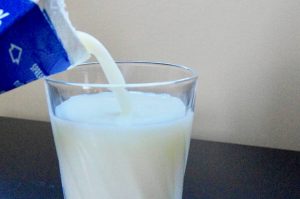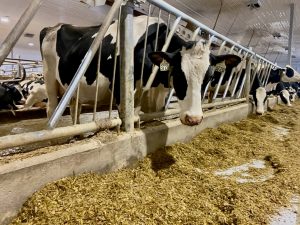
The USMCA dispute-settlement panel issued a final report in December 2021 which found Canada’s allocation of American dairy imports violated previous agreements.
Arbiters concluded Canada was breaching its commitments by reserving 85 to 100 per cent of lower-duty or tax-free dairy imports for Canadian processors. This means Canada has been actively denying American farmers their fair share of the untaxed supply-managed Canadian market, unfairly shielding Canadian farmers from international competition.
Under the agreement, Canada, the United States and Mexico agreed not to limit dairy supply by reserving it for domestic processors. Canada has been breaching this contract yet maintains that it has not “limited” access to trade because a small portion of the tariff rate quota has been granted to foreign countries.
Canada’s protectionist dairy policies indicate the nation’s inability to play fair and by the rules, souring the relationship between international dairy trade partners for national gain.
The United States is not the only nation questioning Canada’s trade behaviour. In 2019, the European Union called out the same unfair allocation system used by Canada under the Comprehensive Economic and Trade Agreement (CETA).
The result of this dairy dispute may bring Canada’s other free trade agreements into question. Trade partners may now be more likely to search for similar violations when they are aware of Canada’s past. In addition, the United States’ victory offers a template that other nations may use to promote change within Canadian trade agreements.
Despite the serious implications of the dispute, the Canadian federal government refuses to admit loss. Canadian officials say they are “pleased” with the findings of the board and argue that the current system of distributing tariff-free quota has never broken the law because Canada’s other free trade agreements have continued without a hitch. However the dispute panel points out this is the first time a trade partner has challenged Canada’s behaviour.
The USMCA ruling puts Canada on a tight schedule as the U.S. demands a solution by Feb. 3. A systematic revision must be done to the established allocation process to no longer exclusively favour domestic dairy companies.
The American federal government has expressed that it will use retaliatory measures such as a trade penalty if Canada fails to comply with the ruling by the established deadline.
Because the country has yet to admit fault and acknowledge proven mistakes, this dispute is likely to taint Canada’s reputation within the trade industry. Trade partners may no longer trust Canada, leading to decreased trade partners and opportunities.
It is currently unclear how this ongoing dispute will play out as many wait for Canada’s next move. However, what is clear is that Canada must reconfigure the way the country deals with trade to avoid further harming trade relations.

























